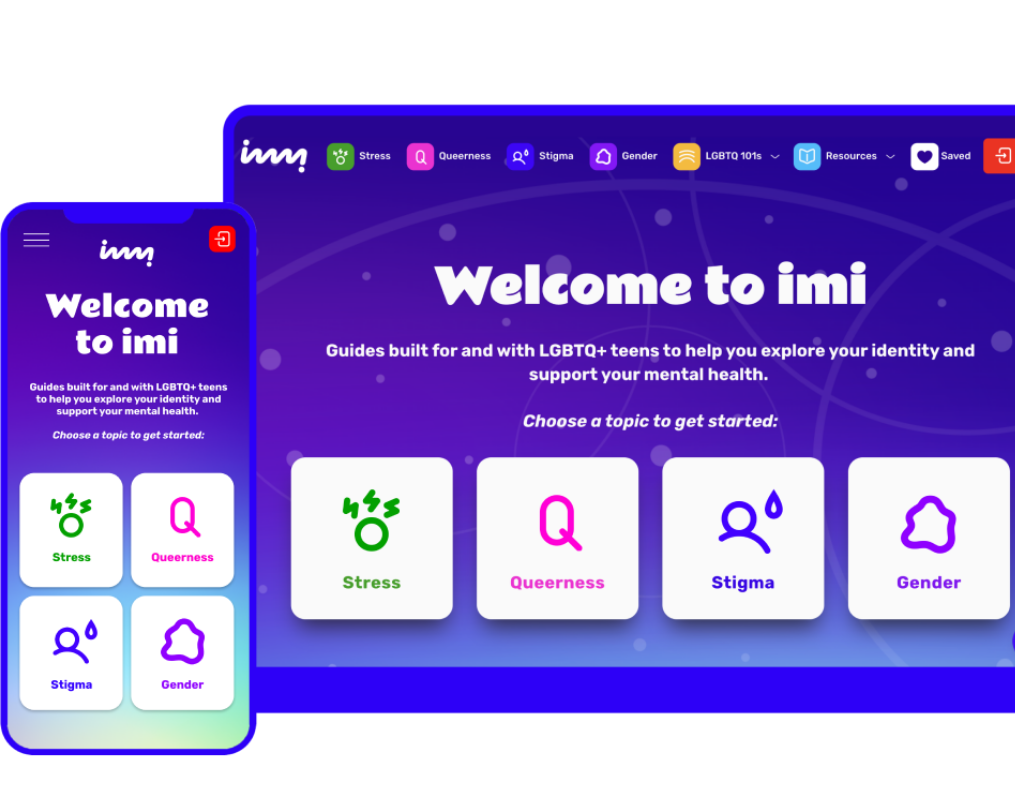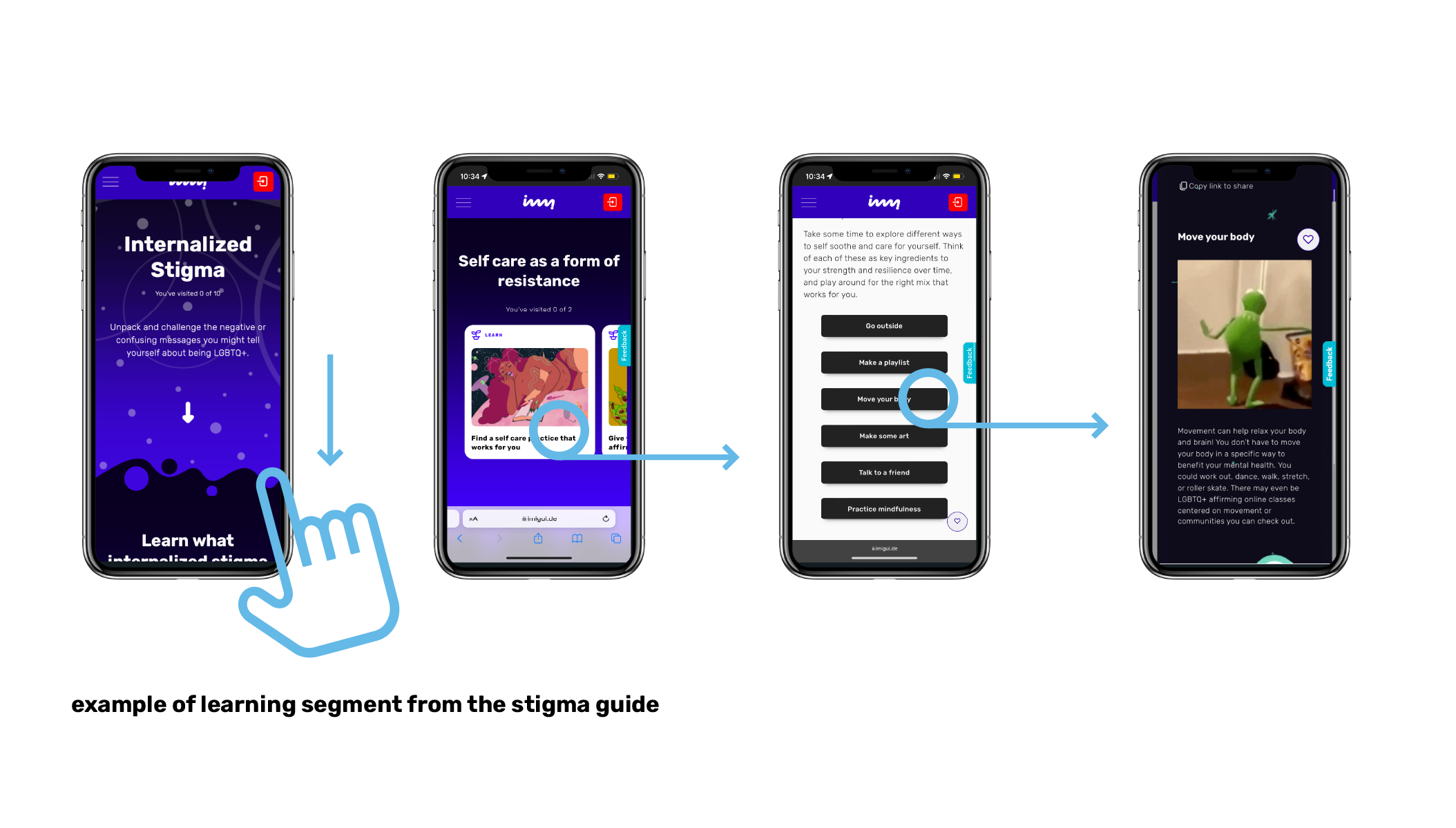
With the abrupt changes that all of us have gone through during the pandemic, the need to prioritize mental health has never been more important. It’s especially important for our kids, specifically LGBTQ+ youth and young adults. According to The Trevor Project’s 2022 National Survey on LGBTQ Youth Mental Health, 60 percent of teens surveyed weren’t able to access mental health care in the past year. And with efforts from politicians to bar access to support and needed care (Don’t Say Gay bills and bans on medication for trans youth for example), spaces that both provide education and validate their experiences are essential. That’s where a new platform, imi, comes in.
imi is a free mental health tool that is designed to assist LGBTQ+ teens in exploring and affirming their identity. Created by nonprofit social innovation organization Hopelab, known for its work at the intersection of tech and youth mental health, imi made its debut on June 1, right on time for Pride Month.
“imi helps address elements contributing to the growing youth mental health crisis and affirms LGBTQ+ teens that their identities are valid, despite messaging coming from political and other homophobic and transphobic systems stating the opposite,” says Grace Greene (she/her), a research associate from Hopelab who helped co-create the platform.
Per research, racial and ethnic sexual and gender minority youth are twice as likely as their non-queer counterparts to report feeling sad or hopeless, and they are three times as likely to have considered suicide than white, non-Hispanic sexual and gender minority youth. Even more alarming, 45 percent of LGBTQ+ youth have seriously considered attempting suicide.
“These statistics are egregious. And we must act now to change them.
she says. “As a social innovation lab and impact investor working to support and empower young people, Hopelab needed to find a way for more queer youth to move from simply surviving to get to a place of thriving.”

imi is seeking to help with that. Researchers who worked on the platform spoke with hundreds of LGBTQ+ teens and young adults, including focusing in on Queer, Trans, Black, Indigenous, People of Color (QTBIPOC), non-binary, and gender non-conforming youth. They based features of the platform on what those young people said they needed.
“What we’ve known for a long time and what we heard directly from the youth we spoke to is that they desire a world that is more accepting, inclusive, and just,” she says. “imi is a space for LGBTQ+ teens, especially QTBIPOC, and those with intersectional identities, to feel seen, supported, and affirmed.”
Users of imi are given four different topics to dive into upon accessing the platform: stress (stressors based on their identity), queerness (facets of their identity), stigma (dealing with negative messaging they receive about their identity that they may internalize) and gender (the role of gender beyond binary and advice for how to explore and express their gender identity).

There are resources (including coping skills), stories, and activities. The stories, for example, can be read or actually heard from short video clips. LGBTQ+ teens and young adults added their voices to the platform, sharing their experiences to be of encouragement to others.
That encouragement, Greene says, goes a long way to helping LGBTQ+ youth and saving lives.
“imi provides teens with the opportunity to look into a mirror, go exploring, or do both,” she says. “It gives them the chance to choose their journey to joy, to self-love, and validation–such a critical thing for historically marginalized groups and adolescents.”
Greene adds that imi overall, “shows QTBIPOC youth that they’re loved, valued, and understood — no matter what is happening outside of the platform.”





